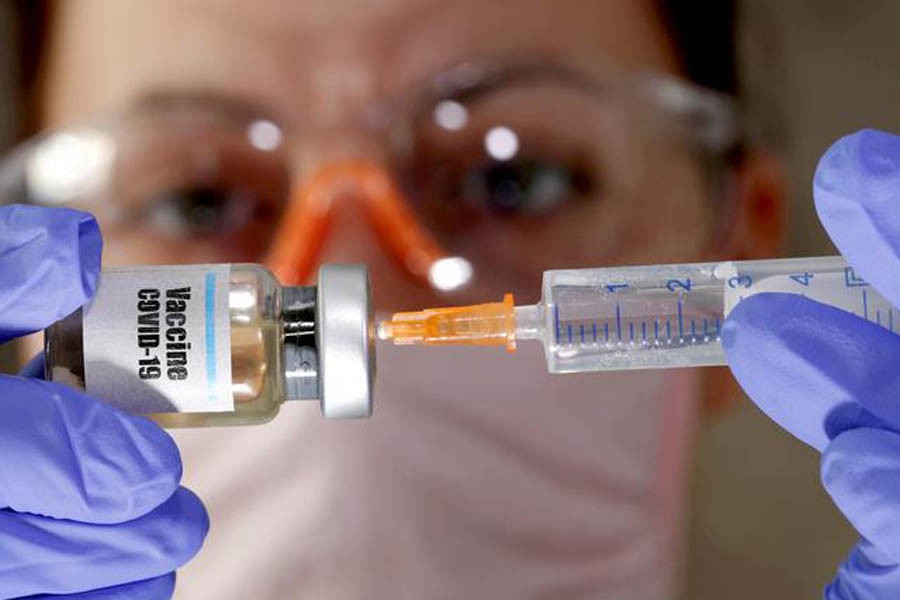Global vaccination strategy 'self-defeating': UNICEF-WHO joint statement

Published :
Updated :

Of the 128 million vaccine doses administered so far, more than three quarters of those vaccinations are in just 10 countries that account for 60 per cent of global GDP, UNICEF Executive Director Henrietta Fore and WHO Director-General Dr Tedros Adhanom Ghebreyesus said in a joint-statement on Thursday.
They also informed that "as of today [Thursday], almost 130 countries, with 2.5 billion people, are yet to administer a single dose".
This "self-defeating" strategy will cost lives and livelihoods, give the virus further opportunity to mutate and evade vaccines and will undermine a global economic recovery, they warned.
UNICEF and WHO – partners for more than 70 years – called on leaders to look beyond their borders and employ a vaccine strategy that can actually end the pandemic and limit variants.
"Health workers have been on the frontlines of the pandemic in lower- and middle-income settings and should be protected first so they can protect us," the heads of UNICEF and WHO were quoted as saying in the joint statement.
Covax-participating countries are preparing to receive and use vaccines. Health workers have been trained, cold chain systems primed. What’s missing is the equitable supply of vaccines, they said.
To ensure that vaccine rollouts begin in all countries in the first 100 days of 2021, it is imperative that governments that have vaccinated their own health workers and populations at highest risk of severe disease share vaccines through Covax so other countries can do the same, they said.
The Access to Covid-19 Tools (ACT) Accelerator, and its vaccines pillar Covax, is fully funded so that financing and technical support is available to lower- and middle-income countries for deploying and administering vaccines. If fully funded, the ACT Accelerator could return up to US$ 166 for every dollar invested, they added.
Vaccine manufacturers allocate the limited vaccine supply equitably; share safety, efficacy and manufacturing data as a priority with WHO for regulatory and policy review; step up and maximise production; and transfer technology to other manufacturers who can help scale the global supply, they mentioned.
“We need global leadership to scale up vaccine production and achieve vaccine equity," said UNICEF's Ms Fore and WHO's Dr Tedros in the joint statement. “COVID-19 has shown that our fates are inextricably linked. Whether we win or lose, we will do so together."
sajibur@gmail.com


 For all latest news, follow The Financial Express Google News channel.
For all latest news, follow The Financial Express Google News channel.